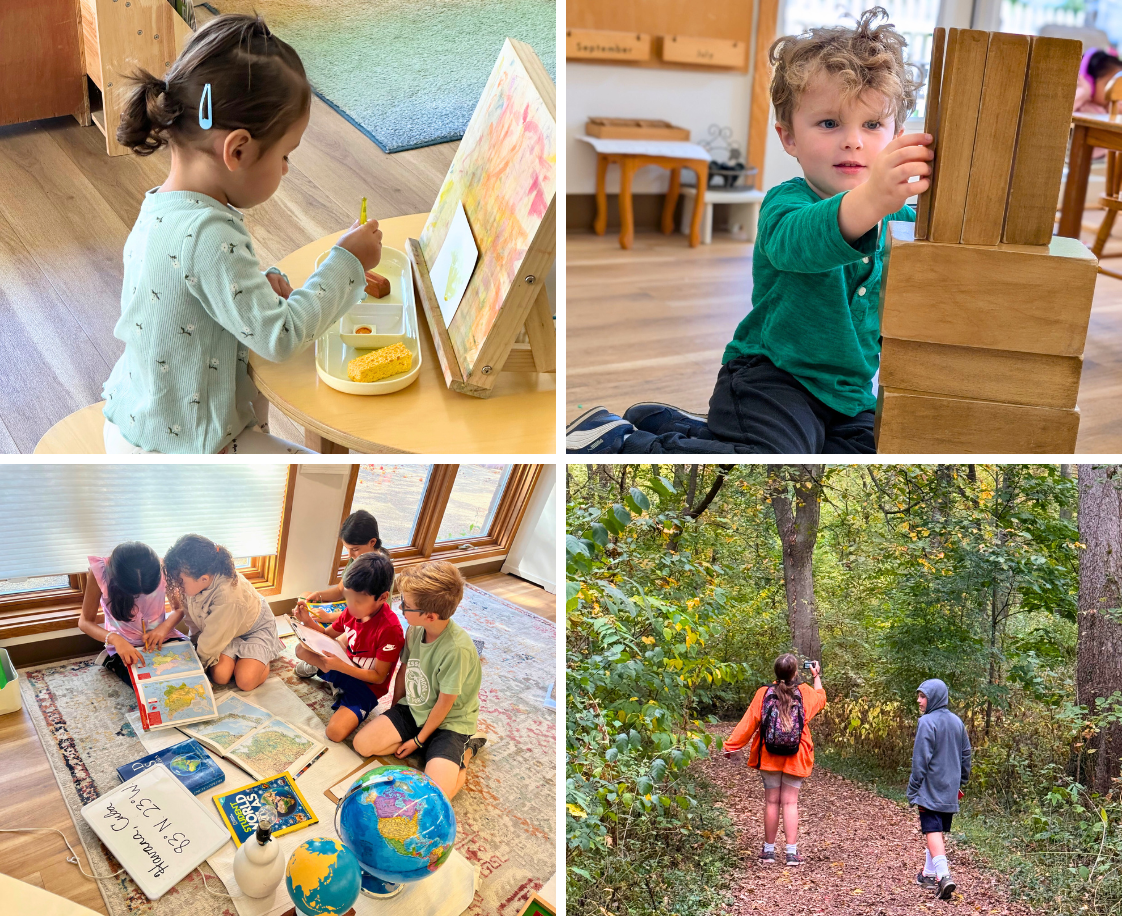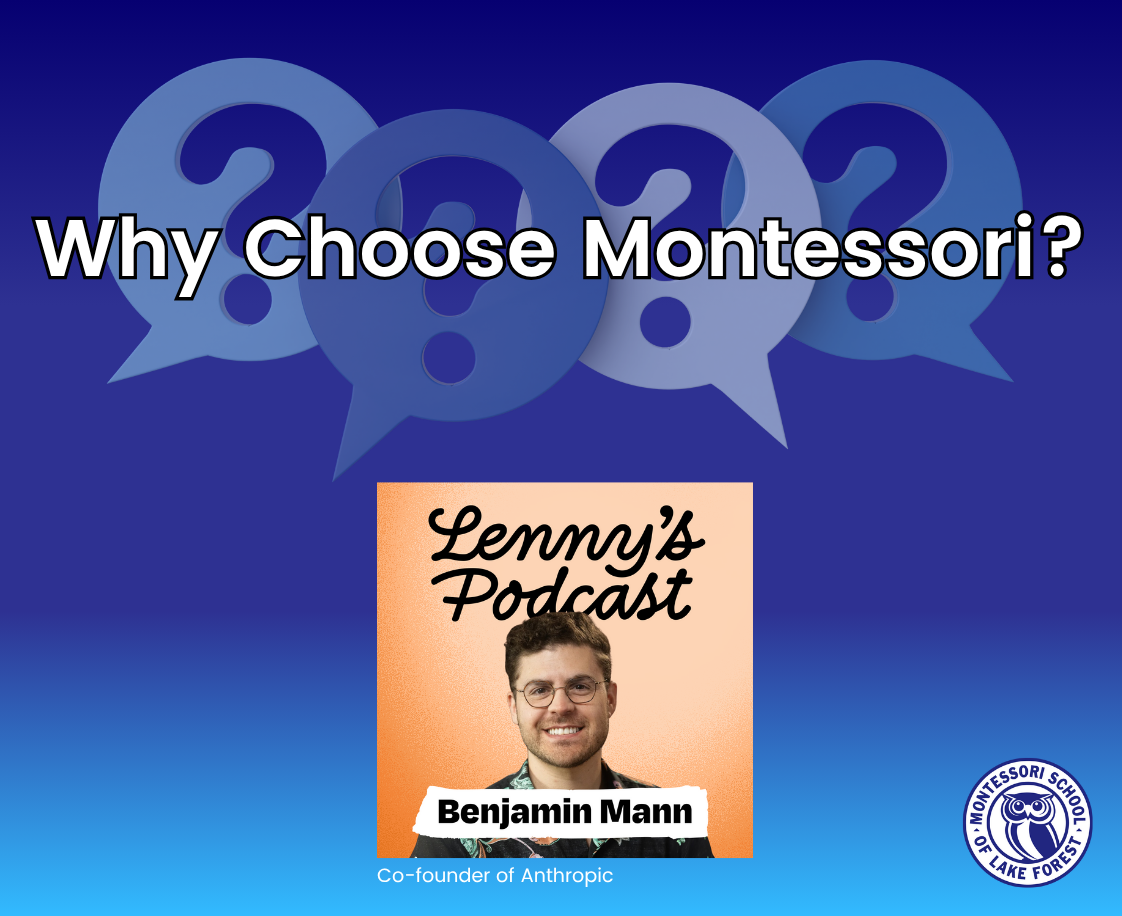This article first appeared in The North Shore Weekend. By Angelika Labno. Photo by J. Geil.

“The concept is a school without walls,” says Brian Abrams, shown with his wife Patty, about the new Montessori high school scheduled to open in 2014.
Brian Abram’s daughter was interested in dissection. She conducted research, wrote a paper and presented it to the teacher. Her school, Montessori School of Lake Forest (MSLF), then ordered in a pig for her to dissect.
Spending an entire day, she took pictures of the process in order to put together a manual on how to dissect for future students. She ended her project with a presentation to her class.
“There’s this interdisciplinary nature of the class,” said Abrams, Lake Bluff resident and former president of the board, at MSLF about Montessori teaching. “You may not have a separate reading, math and science class; instead, you may be doing all three simultaneously.”
If this is what a sixth-grade Montessori student is capable of doing, North Shore educators wondered, what could be possible at the high-school level? That thought essentially led to the creation of Beacon Academy, a Montessori International Baccalaureate high school, set to open in Evanston in the fall of 2014.
The genesis of it was a “flippant comment” made by Abram’s wife, Patty, which led to the gathering of the heads of six Montessori grade schools from Chicago to the North Shore.
Two years ago, they conducted a survey to gauge the interest of the community. Out of 1,300 families, over 900 responded, and 750 were interested or very interested.
Montessori at the high school level is not a totally new concept. The first was Montessori High School at University circle in Cleveland, and Beacon will be the third high school in the world to use its principles as a starting point. David Kahn, Executive Director of NAMTA (North American Montessori Teachers Association), who started the Cleveland school, is also the consultant for Beacon – which will be the first Montessori high school in the Chicago area. It will be private and charge tuition.
Montessori teaching will be fused with International Baccalaureate, which is moralistic in approach and has s significant service component. Class schedule will be more collegiate: instead of several 50-minute class periods, a student may only have three 90-minute classes a day. Teachers will be “high caliber and experts in their field,” according to Beacon headmaster Jeff Bell. There will be a lot of flexibility in offerings, classes will be project based, and students can expect to get off the campus often.
“The concept is a school without walls,” said Abrams. “The city would be the campus, not just the physical structure itself.”
The campus is not yet determined, and will be in a leased space for the first few years, but the location will be in Evanston. As that is just a short train ride into the city, students will have museums, cultural institutions, medical facilities and business at their fingertips. Bell explained that he wants the students to learn “street smarts” in the sense that they will be able to masterfully navigate the city and utilize its offerings.
“High school-age students are capable of so much more than what is currently offered within the confines of high school schedules and buildings,” said Lynn Jessen, co-founder of Forest Bluff School and mother of a MHS-University Circle graduate.
Some of today’s best inventors were Montessori students. The duo who started Google, Sergey Brin and Larry Page, credit Montessori learning as a factor to their success. Other famous Montessori students are Will Wright, creator of “The Sims,” Jeff Bezos, founder of Amazon.com, and Prince William and Harry in England.
Although the school may be initially popular with those coming from a Montessori background, Bell thinks public school students can have an easy transition into the system, as long as they are curious to learn and eager to explore.
“If you’re sending your kids to Montessori schools, you’re doing a good thing,” said Bell. “They are always prepared, successful, interested in learning for the sake of learning, and always bring talent to the table that you’d never expect.”
The admissions process is set to start in fall of 2013 and will only be open to ninth and tenth graders until further notice. Updated information can be found at www.beaconacademyhs.org. Start-up costs for the campus are about $2.1 million, and they will be funded through individual philanthropy.
“I hope this becomes a springboard for many other Montessori high schools,” said Abrams.
The post Opening Doors: Chicago Area Montessori High School appeared first on Montessori School of Lake Forest.



